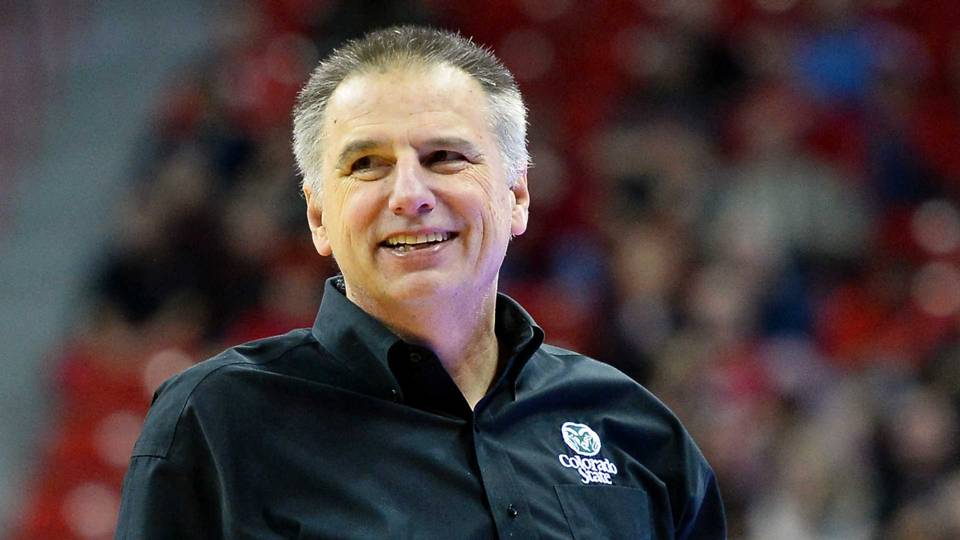 |
| Getty Images |
05 March 2018
Larry Eustachy, CSU Basketball, and Emotionality
09 February 2018
A variety of thoughts: USA Gymnastics and Michigan State University
 |
| Source: Laurence Griffiths/Getty Images
From left: Simone Biles, Gabrielle Douglas, Lauren Hernandez, Madison Kocian and Alexandra Raisman
|
22 January 2018
A review: "We are man enough"
If you're looking for role models who are men attempting to create a better world for themselves and the people around them, this is a great starting point. They do a great job of asking the initial questions that men should be asking of each other. Questions like, "What does it mean to be a man? Why is that the meaning? Why is it so hard for men to be vulnerable? What do we do next?" They come up with lots of different answers, and a lot of the conversation around the dinner table seems to be more intellectual. And I think that's an ok place to start. For me, the harder work is to be
17 October 2017
Feels About Football
 |
| Photo Cred - Gerry Melendez |
I love the conversations around football. Something this popular also, simply put, holds a mirror to "our" society. Recent NFL seasons have exposed what we are willing to be complicit about in order to maintain "our" entertainment that is the sport of football. That list of what we're complicit about is incredibly long. Sports can challenge our understandings of masculinities, race, gender violence, sexual orientation, socioeconomic disparities, mental health, military, and all of those at once even if at times they feel like separate topics. It's one of the simplest ways to engage in important societal issues, and you can do this by simply asking, "Hey, what do you think about Kaepernick and what he stands for?" Simple and complex.
The topics above have been hashed out, re-hashed, and revisited as new information comes out. I'm not here to make a stance (although I have one). I'm here to explore something a little deeper that keeps surfacing for me year after year during football season. What I want to explore is the question: Is football something I actually enjoy or something that I learned to enjoy?
17 August 2017
Stay tuned!!!
What's up everybody! I know this blog has been dead for 2 years but that doesn't mean Men in the Movement hasn't been doing work on campus. The WGAC has been going through some major transitions and now we're fully staffed and ready to bring back things that we had to drop! There's a ton of things going on right now so be sure to check back soon to read our take on various oppressions happening in our country.
17 September 2015
Sexual assault and sports: Reframing the Derrick Rose conversation
The sports arena,
particularly men’s sports, is a great container to discuss many social issues
as it relates to masculinity and gender-based violence with men. The “off the
field” situations that professional athletes constantly bring onto themselves
is magnified by the incredible cultural and capitalistic machine of sports
media. This gives us many opportunities to discuss important issues like men’s
violence against women. The Derrick Rose situation is no different.
In short, a woman has
anonymously come forward with a lawsuit stating that Rose and 2 of his friends
drugged and raped her in August of 2013. More details can be found by simply
googling Derrick Rose. (More details here,
here,
and here.)
This isn’t the first (and
unfortunately, won’t be the last) time that a high profile male athlete is
accused of rape. We have some evidence of what conversations around these
stories are like, so I would like to take a moment to respond to some of the
common responses that I hear.
27 February 2015
Man Spreading: What is it and what’s the big deal?
When
we use the phrase Rape Supportive Culture, it can sometimes be difficult to
know exactly what this means and what it looks like. Sometimes, men will get
defensive because it implicates us as part of the problem (and we are part of the problem in a lot of ways
and are trying to work against this. Either way, men benefit from Rape
Supportive Culture. But that’s a discussion for another day…). Sometimes we can
feel helpless when we gain a better understanding of Rape Supportive Culture.
Because it’s a lot. And it can be difficult to know where to start. Ultimately,
if we want to reduce rates of rape and sexual assault in our culture,
particularly against women, children and trans-identified people,
Subscribe to:
Comments (Atom)
